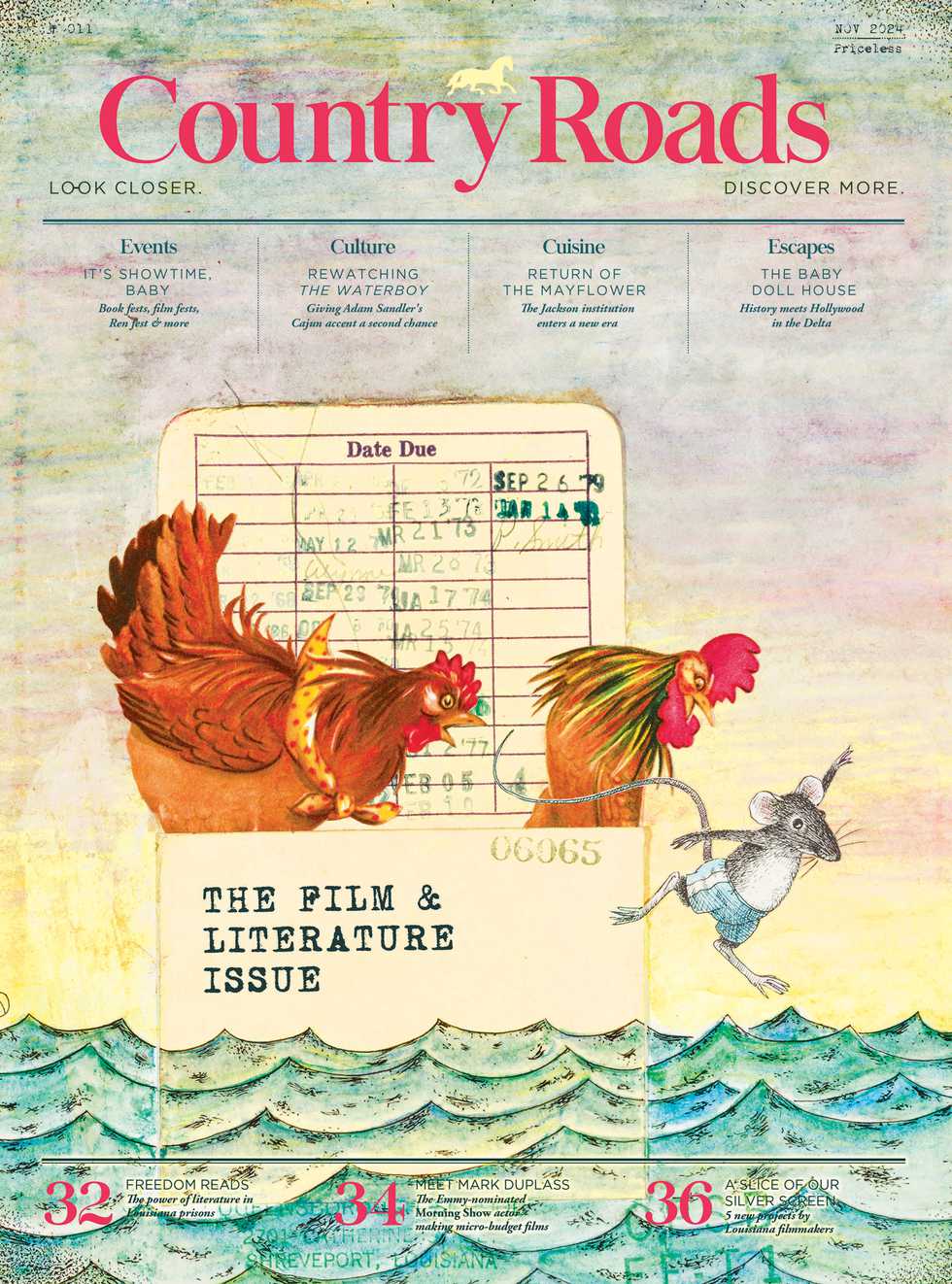Photo by Elizabeth R. Cowan
The Ernest J. Gaines Award, named in honor of the celebrated Louisiana author, recognizes excellent works of rising African American fiction writers. This year, the ninth annual award will go to T. Geronimo Johnson for his second novel, Welcome to Braggsville, which tells the story of D’aron Davenport, a white student at UC-Berkeley who, along with a group of friends, decides to stage a creative disruption of his Georgia hometown’s annual Civil War re-enactment—with tragic results. Our resident book critic, Chris Turner-Neal, spoke with Johnson about his work and his experience winning the award.
CTN: How did you find out you had won the Ernest J. Gaines Award, and how did it feel?
TGJ: I was at a retreat in Oregon, so about thirty-six hours passed between the first attempt to contact me and when I actually went down the hill and got cell-phone reception. It was exciting not just to be told, but to be told about fifteen different times at once. It’s an honor because of the award’s association with Ernest Gaines—he’s a master of the form and a trailblazer who’s opened doors for me. It was also rewarding because I don’t really write for people who spend a lot of time in English departments, so I feel this is an acknowledgment that I’m on the right path as a writer of color.
CTN: This novel satirizes UC-Berkeley (“Berzerkley”) as much as it does the rural South. What reactions have you seen from people familiar with Berkeley?
TGJ: Largely positive. People who’ve spent time in the Bay or who went to Berkeley have told me it makes them feel nostalgic for the idealism of that place and time, and people who still live there have said it reminds them of particular pockets of the Bay.
CTN: You mention “talking white” in your author’s note: do you think you write white, or black? Or is there such a thing?
TGJ: On one level, of course, there are usage patterns that can signal race and gender or other identifiers. More than writing “black” or “white,” though, is the idea of writing with or without a certain racial sensitivity. I think it’s possible to want to write about race, but to be unable to do so convincingly—either because of a lack of sensitivity or just from a lack of experience. So beyond language use is an idea of emotional experience and the worlds you’re exploring. It’s not that you’d necessarily read a sentence and know the race of the writer, but at the end of a larger work you’d understand whether the writer knows what they’re talking about.
CTN: Your characters seem to want to do the right thing, but to have a hard time identifying what the right thing is. Do you think this is a common human situation, perhaps especially around racial issues?
TGJ: Well, it’s tricky when you know something is wrong but not really what aspect of it is wrong. That’s the case with race. People will see something is wrong, but not really the context or the details of why. And so there are these little incidents where we know something should be done, but not what should be done. The problem can seem too big, and you might not know where to start. Take these issues of police brutality that have been in the news—if you’ve only become aware of this in the past couple of years, as many people have, if that bothers you, how do you know what to do about it? People don’t necessarily know how to be helpful even when they want to be. And of course, there are still dishes to do, bills to pay, kids to shuttle around…
CTN: D’aron’s and his friends’ attempts to address issues “academically” fail. What does this say about academia’s ability to meaningfully address real-world issues?
TGJ: It’s not that it’s impossible for this academic worldview to help, but I am examining the limit of intervention grounded purely in theory. Academic understanding can be abstract, decoupled from the real world and life as it is actually lived. And so there’s a large set of challenges that arise when an outside group comes into somewhere with a plan. This approach can fail to take into account how it feels for people outside the institution—it takes these people time to understand how “the Academy” works. You also have situations where people are making decisions based on theories that may not be fully proven or 100% successful. There’s a lot to be said for how academics can move forward with optimism, but these attempts will fall short if the stakeholders on the ground aren’t involved.
CTN: The most relatable authority figure at Berkeley is D’aron’s adviser Mrs. Brooks, a fellow Southerner and an African American. Is regional identity or shared experience a stronger uniting factor than race is a dividing factor?
TGJ: In general, no, but it can trump race. Any significant shared experience that forms part of an identity someone is proud of can trump or transcend race, at least in certain contexts. But race never goes away. Take your example of Mrs. Brooks. D’aron feels closer to her than he does to other adults at Berkeley, but their interactions take place in her office. Imagine them elsewhere. He might still feel close to her in another context, but observers wouldn’t be likely to get it. I don’t think you can ignore outside reception when looking at issues like this.
CTN: Have you ever been to a re-enactment like the one planned in the novel?
TGJ: No. No re-enactments were harmed in the writing of this novel.
Johnson will be honored at a ceremony on January 21 at Baton Rouge’s Manship Theatre. Event details here.

